In September 2022, Advance CTE and ECMC Foundation announced the second cohort of The Postsecondary State Career Technical Education (CTE) Leaders Fellowship at Advance CTE—Sponsored by ECMC Foundation. The Advance CTE — ECMCF Fellows include representation across multiple demographic categories reflecting the Fellowship’s goal of intentionally building a postsecondary leadership pipeline for underserved populations in Career Technical Education (CTE) that closes racial representation gaps and removes equity barriers to postsecondary leadership advancement.
This month, we’re excited to highlight two members of Advance CTE’s second cohort of Postsecondary State CTE Leaders Fellows. ECMCF Fellow Jomarie Coloriano (WI) is using her new position to design and implement policies that are already improving outcomes for learners in her community.
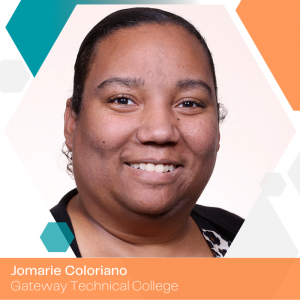 Tell me more about your journey to the Fellowship.
Tell me more about your journey to the Fellowship.
I would describe my journey to the Fellowship as a happy accident, but one that has been profoundly meaningful. An email about the Fellowship came across my inbox, and it was at a time in my life when I was seeking opportunities to further challenge myself within Career Technical Education (CTE). I went to the website to learn more about the experiences of the first cohort, but I didn’t think I’d had enough relevant experience to be a competitive candidate for the second cohort. I was elated when I received my offer to join the Fellowship, but was immediately anxious about balancing working full-time, my doctoral coursework and this Fellowship. Looking back now, I am so thankful that I took the leap to apply and accept my offer. Being able to connect with so many other professionals who share my passion for this work is proof that I am in the right place at the right time. Learning from national leaders during workshops or at convenings and having critical discussions within our own cohort of Fellows has been invaluable. I think it requires a lot of courage to show up for these conversations, especially for those who are doing this work in states hostile to topics of equity.
I’ve also been able to reflect on how my experience of balancing working full time, my doctoral coursework and navigating the Fellowship reflects the reality our learners have as well when we think about CTE. I know this work is important and answering the call to make an impact for learners should be considered as an issue of national [economic] security. Without a skilled workforce to meet the demands of a changing economy, we’re leaving gaps that will have an adverse impact on generations to come.
What skills or areas have you experienced the most growth in the program?
Prior to this Fellowship, I would classify myself as an “emerging data embracer” but I don’t think I was informed at the level that I needed to be. This Fellowship has provided the space and opportunity for me to develop the skills to approach data with an equity lens. Becoming data literate to inform our practices and our work is important as these skills allow us to present a more complete story, and without this, you would not have the entire picture of why we’re seeing certain programs and outcomes. An institution or program is only as strong as the learner with the greatest need, and we cannot allow ourselves to ignore these gaps.
I also had the opportunity to identify other blind spots in my abilities through our workshops and working closely with my coach.
Have you been tapped for new or more advanced roles within your organization as a result of your experience in the Fellowship?
I began the Fellowship as a student support specialist for the multicultural program. In this role, I handled case management for our first-generation college students, multicultural program students, and students from immigrant backgrounds whether they’re DACA or recent arrivals to the U.S. Through the Fellowship, I’ve built the confidence and become more informed about CTE and as a result, I applied and was selected to be the Director of Inclusive Excellence. In this role, I oversee the complete suite of student supports offered by my institution, expanding the populations of learners that I support to include veterans, single parents, non-traditional occupations and the mentoring program. Without the Fellowship, I don’t think I would have had the requisite skills to be invited into these spaces to have a larger impact.
I am more confident talking about policy and strategic implementation, identifying friction points for students and developing relationships with internal stakeholders across different departments. Within my institution, I co-led the development of a policy to support learners with limited English proficiency. From there, we went on the develop a language access plan which allowed us to provide accountability for the implementation of this policy. We worked closely with other departments across campus to better understand the climate for learners with limited language proficiency. This work has been fast-tracked after presenting our work to the Wisconsin Technical College System and we’ve received requests for other institutions wanting to replicate our work on their campuses as well as external nonprofit organizations looking to partner with us.
How has your experience in the fellowship helped you explore new spaces or positions in postsecondary state CTE leadership?
The Fellowship has afforded me the opportunity to look at CTE beyond my institution. The collaboration that happens across Wisconsin’s technical colleges is certainly a bright spot and having these touch points has allowed me to look at CTE through a regional lens and the Fellowship has provided a national context as well.
Embracing data literacy and being more data-informed in my approach to this work has shown me how to be a truth seeker and listen to the learners and constituents of our institution. This Fellowship has pushed me to ask more critical questions and challenge the status quo to understand how to find alternative solutions. I’m asking myself what it truly means to be an advocate for CTE and how to ensure our policies and practices align with this vision.
How has the Fellowship expanded your network?
The Fellowship has expanded my network in a number of meaningful ways. My relationship with my mentor has been incredible! At first, I was worried that it would feel transactional or based on checking a box for compliance’s sake, but Dr. Jeanne Arnold is amazing. As a mentor, she is highly supportive and highly encouraging, and our conversations are not limited to CTE. We’re looking at things in an intersectional way to understand how social work and social work policy impact CTE. I also appreciate the wealth of knowledge that is in the network of Fellows. This network with cross-functional dialogues allows us to look at problems in more complex ways and meeting members of the other ECMC Fellowships at the convening was very meaningful.
Have you discovered new opportunities for what a role in postsecondary CTE could look like/the responsibilities of such a position?
My new role as the Director of Inclusive Excellence is new to the college, and so I’m exploring how this position might evolve especially as I continue to build relationships with external partners. I want to consider the scope of this work beyond my institution to better understand how to bridge the gaps for the learner populations my office supports and help them navigate basic needs issues.
My ideal role is one where I am able to shape policy and work closely with the implementation of that policy to ensure that it has the intended impact. My current position allows me to explore this space and I recently pitched an idea of developing a literacy program to our institutional research team. Last week was the launch of the project and I was pleased to see the number of people in attendance representing cross-functional areas. Our IR team developed the curriculum and the idea is that this would operate as a pop-up where folks can come and interact on demand. I really enjoy being at the college and being able to level set and bring everybody together to positively impact student success and have a sense of belonging and meaningful experiences. Through these efforts, we’re able to develop a common language to create impact and move it forward in sustainable ways.
You can contact Jomarie at [email protected].


 After over three weeks without a leader, the House elected a new Speaker on Wednesday — Rep. Mike Johnson (R-LA). Over the last several weeks a slew of earlier candidates failed to garner the necessary support for this role, including Majority Leader Steve Scalise (R-LA), Judiciary Committee Chairman Jim Jordan (R-OH), and most recently, Majority Whip Tom Emmer (R-MN). Following these failed candidacies, House Republicans reconvened late Tuesday night this week to conduct another informal straw poll to determine a new candidate for the Speakership. After winnowing a field of eight declared candidates, Johnson ultimately prevailed over Rep. Byron Donalds (R-FL) by a margin of 128-29. The next day, acting Speaker Patrick McHenry (R-NC) reconvened the chamber to vote for a new Speaker where Johnson prevailed over current Minority Leader Hakeem Jeffries (D-NY) by a margin of 220-209.
After over three weeks without a leader, the House elected a new Speaker on Wednesday — Rep. Mike Johnson (R-LA). Over the last several weeks a slew of earlier candidates failed to garner the necessary support for this role, including Majority Leader Steve Scalise (R-LA), Judiciary Committee Chairman Jim Jordan (R-OH), and most recently, Majority Whip Tom Emmer (R-MN). Following these failed candidacies, House Republicans reconvened late Tuesday night this week to conduct another informal straw poll to determine a new candidate for the Speakership. After winnowing a field of eight declared candidates, Johnson ultimately prevailed over Rep. Byron Donalds (R-FL) by a margin of 128-29. The next day, acting Speaker Patrick McHenry (R-NC) reconvened the chamber to vote for a new Speaker where Johnson prevailed over current Minority Leader Hakeem Jeffries (D-NY) by a margin of 220-209.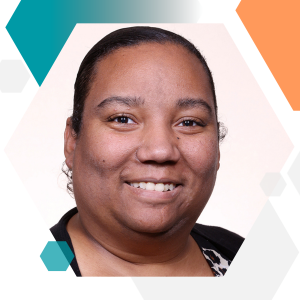
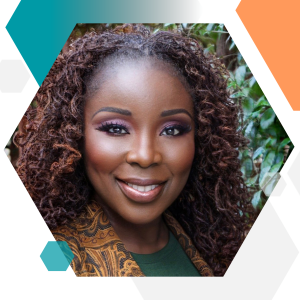

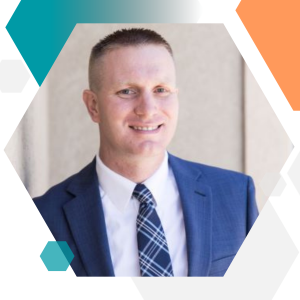
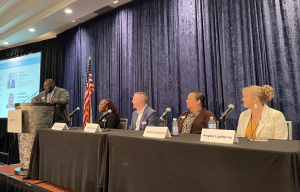 Fellows were also asked to share the key event or events that reinforced their decision to apply to the Fellowship, in other words – when they knew they made the right decision. Dr. Gardner shared that in CTE she rarely has an opportunity to work with or collaborate with other leaders of color across the nation and view the entire landscape of leadership possibilities in postsecondary CTE. The Fellowship offered an opportunity to build a network consisting of her peers, guest speakers invited to the Fellowship workshop and most importantly her coach whom she felt she was perfectly matched with based on their commonalities and interests. She recognized the level of thought the Advance CTE staff dedicated to finding the right mentor for each of the Fellows. Caleb discussed being paired with a postsecondary administrator with an automotive background and how the monthly coaching meetings inspired him to begin seeking the director position he currently holds at his institution.
Fellows were also asked to share the key event or events that reinforced their decision to apply to the Fellowship, in other words – when they knew they made the right decision. Dr. Gardner shared that in CTE she rarely has an opportunity to work with or collaborate with other leaders of color across the nation and view the entire landscape of leadership possibilities in postsecondary CTE. The Fellowship offered an opportunity to build a network consisting of her peers, guest speakers invited to the Fellowship workshop and most importantly her coach whom she felt she was perfectly matched with based on their commonalities and interests. She recognized the level of thought the Advance CTE staff dedicated to finding the right mentor for each of the Fellows. Caleb discussed being paired with a postsecondary administrator with an automotive background and how the monthly coaching meetings inspired him to begin seeking the director position he currently holds at his institution.  Over the past six months, four states,
Over the past six months, four states, 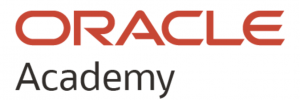 As Oracle’s global philanthropic educational program (FREE), Oracle Academy is open to educators around the world to advance technology education, skills, innovation, diversity and inclusion. We offer academic institutions and their educators free teaching and learning resources ― including curriculum, cloud, software and educator professional development ― that help prepare millions of learners with hands-on practice and career-relevant skills.
As Oracle’s global philanthropic educational program (FREE), Oracle Academy is open to educators around the world to advance technology education, skills, innovation, diversity and inclusion. We offer academic institutions and their educators free teaching and learning resources ― including curriculum, cloud, software and educator professional development ― that help prepare millions of learners with hands-on practice and career-relevant skills.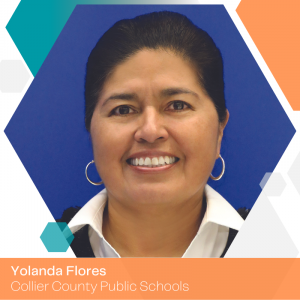 Tell me more about your journey to the Fellowship.
Tell me more about your journey to the Fellowship.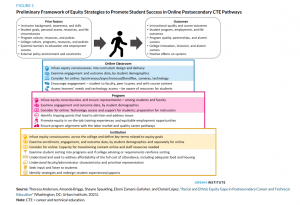
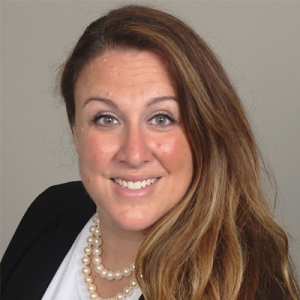 I could not be more delighted to join the team here at Advance CTE! A self-proclaimed “Career Technical Education (CTE) evangelist,” I’ve spent much of my career designing, implementing and supporting policies and practices that create the conditions for high-quality CTE to flourish, and have had the pleasure to learn from and work alongside the Advance CTE team and members over those years. As a former State CTE Director and Advance CTE member, it is an honor to be able to give back to an organization that has given so much to me and to the field at large.
I could not be more delighted to join the team here at Advance CTE! A self-proclaimed “Career Technical Education (CTE) evangelist,” I’ve spent much of my career designing, implementing and supporting policies and practices that create the conditions for high-quality CTE to flourish, and have had the pleasure to learn from and work alongside the Advance CTE team and members over those years. As a former State CTE Director and Advance CTE member, it is an honor to be able to give back to an organization that has given so much to me and to the field at large.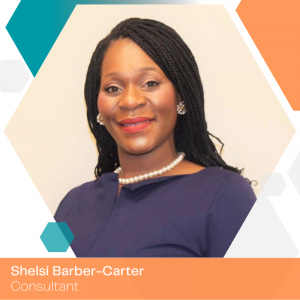 Tell me more about your journey to the Fellowship.
Tell me more about your journey to the Fellowship.